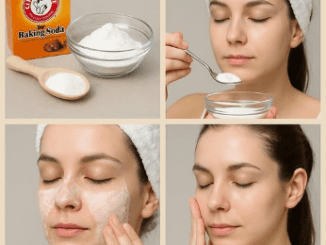
Vitamin C is one of the most celebrated skincare ingredients—it brightens dull skin, protects against damage, and slows down the signs of aging. But if you have sensitive skin, the idea of using Vitamin C can feel intimidating. You’ve probably heard that it can sting, cause redness, or lead to irritation. So, is it really suitable for sensitive skin? The truth is yes—with the right approach, Vitamin C can be a game-changer, even for delicate skin. Let’s break down how to use it without triggering sensitivity.
Is Vitamin C Suitable for Sensitive Skin?
Sensitive skin isn’t a dealbreaker when it comes to Vitamin C—it just requires a little extra care. Pure Vitamin C, also known as L-ascorbic acid, is powerful but highly acidic, which means it can sometimes cause redness, dryness, or a tingling sensation. But that doesn’t mean you need to skip it altogether.
Here’s how to make it work:
- Start slow: Begin with a lower concentration of 5–10%. This gives your skin time to adjust gradually.
- Pick gentler forms: Vitamin C derivatives like magnesium ascorbyl phosphate or sodium ascorbyl phosphate are less harsh but still effective.
- Always patch test: Try it on a small area first to see how your skin reacts.
- Pair with soothing ingredients: Look for formulas that also include Hyaluronic Acid, Ceramides, or Niacinamide to keep your skin calm and hydrated.
Benefits of Vitamin C for Sensitive Skin
Even if your skin is reactive, Vitamin C has plenty of perks worth exploring:
- Brightens and evens tone: It helps fade dark spots, acne scars, and hyperpigmentation, giving your skin a more radiant appearance.
- Boosts collagen: As we age, collagen levels drop, causing fine lines and sagging. Vitamin C supports collagen production, improving skin firmness.
- Protects against damage: Think of Vitamin C as a shield. It neutralizes free radicals caused by UV rays, pollution, and stress, helping your skin stay youthful and resilient.
Video : Best Vitamin C for Dark Spots, Acne, & Anti-aging by Skin Type
Best Way to Use Vitamin C If You Have Sensitive Skin
If you’re ready to add Vitamin C to your routine, follow these steps to keep your skin happy:
- Cleanse gently: Use a mild, non-stripping cleanser to prep your skin.
- Apply in the morning: Vitamin C works best during the day, especially when combined with sunscreen.
- Don’t overdo it: Use it 2–3 times per week to start. Once your skin builds tolerance, you can increase frequency.
- Moisturize right after: Lock in hydration with a cream that contains barrier-strengthening ingredients like ceramides or niacinamide.
- Never skip sunscreen: Vitamin C boosts protection, but SPF is still essential to prevent UV damage.
Does Vitamin C Make Skin More Sensitive?
One common concern is whether Vitamin C makes skin more reactive. While it doesn’t directly thin your skin or increase sensitivity, its acidic nature can sometimes trigger irritation if used incorrectly.
To avoid issues:
- Don’t mix Vitamin C with too many other active ingredients at once.
- Stick to lower concentrations if you’re prone to redness.
- Always follow up with a hydrating moisturizer and sunscreen.
If irritation persists, consider switching to alternatives like:
- Niacinamide: Brightens and strengthens the skin barrier.
- Azelaic Acid: Reduces pigmentation and soothes inflammation.
- Licorice Root Extract: Calms irritation and fades dark spots.
- Green Tea Extract: Reduces redness while providing antioxidant protection.
Common Myths About Vitamin C and Sensitive Skin
Let’s clear up a few misconceptions:
- Myth 1: Sensitive skin can’t use Vitamin C
Fact: You can—it just requires the right formulation and routine. - Myth 2: Vitamin C gives instant results
Fact: Visible changes typically appear after 4–6 weeks of consistent use. - Myth 3: All Vitamin C products are the same
Fact: Different forms vary in potency and gentleness. L-ascorbic acid is strong but harsher, while derivatives are milder and more suitable for sensitive skin.
Signs of Irritation from Vitamin C
Keep an eye out for warning signals that your skin might not be tolerating Vitamin C well:
- Persistent redness or flushing
- Stinging or burning that doesn’t fade
- Dryness or peeling in applied areas
If these occur, pause use, soothe your skin with barrier-repairing creams, and switch to gentler alternatives.
Video : Best Vitamin C Serums for Every Skin Type | Dermatologist Recommended
Conclusion
Vitamin C doesn’t have to be off-limits for sensitive skin. With the right concentration, thoughtful product choices, and a slow, steady introduction, it can brighten your complexion, reduce signs of aging, and protect against environmental stressors. And if pure Vitamin C feels too harsh, alternatives like Niacinamide or Azelaic Acid can provide similar benefits without irritation.
Your skin deserves effective care without discomfort—and Vitamin C, when used wisely, can help you achieve a radiant, healthy glow.


